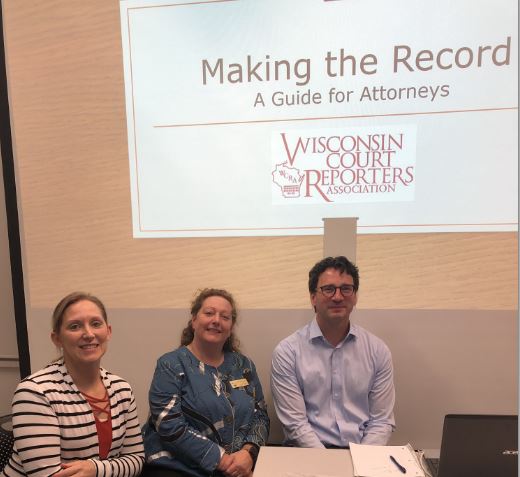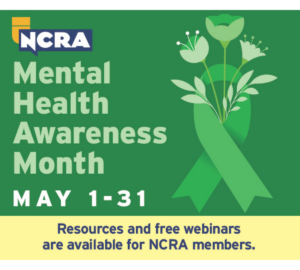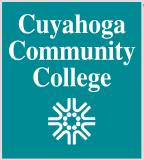
Court reporting student Kasey Anderson, WCRA Board Member Kristen Wurgler, attorney Jason Knutson
By Kristen Wurgler, RPR
On behalf of the Wisconsin Court Reporters Association, I had the great fortune to create and present a PowerPoint slide show for a pre-trial advocacy class at the University of Wisconsin-Madison Law School in October. It was a neat experience for all involved. Let me explain how this came about.
Erica Schueler, a WCRA board member, sent letters of inquiry to law programs in Wisconsin to spark some interest in having WCRA present to law students about court reporting. After receiving this letter, the law school passed the letter on to instructors who might be interested in the experience. Attorney Jason Knutson from Habush Habush & Rottier was the instructor for a class on pre-trial advocacy. He decided a presentation by WCRA was a really valuable opportunity for his students. I answered Erica’s call for a presenter because I work at UW-Madison. WCRA is very interested in forging an early relationship with law students so that they could have an early exposure to court reporters, see the relationship between the two professions, provide some tips for attorneys, and understand the attorneys’ responsibility in creating a good record. The presentation was entitled “Making the Record” and was adapted from NCRA’s 2016 guide of the same name. [Ed Note: While the document was originally published by NCRA, it is currently offered as a resource through the organization’s charitable arm, the National Court Reporters Foundation. You can find more materials here.]
The plan for the pre-trial advocacy class was that I would present a PowerPoint for about 30 minutes, which would outline tips for making a good record. Then the students would split into teams and have mock depositions. When I heard the plan for the day, I was determined to get court reporting students involved. I invited Madison College court reporting students to attend so that they could also be a part of this role-playing activity. The court reporting students could set up their steno machines and laptops and then have the practice of swearing in “witnesses,” writing depo material, asking for clarification from witnesses, and/or prompting witnesses to speak up. This was the perfect opportunity for court reporting students to gain confidence in using their voice to control a deposition and practice writing. But, in addition, the hope was that the experience would motivate them by showing them how good their steno skills are, which in turn, might provide a little positivity and propel them to complete their court reporting degrees.
Student Kasey Anderson from MATC jumped on the opportunity. So on a very rainy October day, Kasey and I met at the law school and talked about the plan for the class. We both put our steno machines in plain sight so that law students would have the opportunity to see them, strike the keys, and have the chance to write a bit. The “Making the Record” presentation stressed the relationship between attorneys and court reporters and provided many tips for creating a good record such as: pausing and thinking before speaking, not speaking too fast, identifying important information for the court reporter, spelling technical terms or odd spellings of proper nouns, judicial etiquette of speaking one at a time, and respecting the court reporter’s need for breaks.
I had handouts for the students. One was the NCRA Making the Record Guide from which the PowerPoint was created. The second was a diagram of the steno keyboard. We even went through an exercise where I taught the student-attorneys how to write Bucky on the steno keyboard. After I explained how the steno machine worked, I wanted them to have hands-on experience with the complicated nature of court reporting. I heard many protestations as we worked through the hand gymnastics of writing Bucky on their faux steno keyboards.
After the presentation, the student attorneys broke into groups of three and practiced deposition procedures. One was the plaintiff attorney, one the defense attorney, and one a deponent. The plan was that each group would rotate to Kasey at least once, so they could have the experience of sitting with the court reporter.
During the first rotation, I sat with Kasey so that I could swear in the witness and she could watch and listen. I think it was good for her to see that the court reporter is allowed to have a voice and can use it to get a deposition off to a good start. I explained to the deponent about deposition ground rules (i.e. audible answers, wait until the full question is asked before answering, etc.) and then swore in the witness so that Kasey could understand the flow. The student-attorneys spelled their names for Kasey slowly and let her know who they represented. Every once in a while, one of the student attorneys would look our way sheepishly because of a stray vocalization of something that went against the tips from the PowerPoint. This led Kasey to feel comfortable using her voice when she requested one of them to speak up or ask for a clarification. It was awesome! It was good see the student-attorneys stumbling and asking Kasey not to judge because they had never done a depo before. This was a good reminder that everybody has to start somewhere!
As the groups would rotate over to Kasey, she and I had the opportunity to chat about how things were going for her. I had a couple helpful hints for her about how to handle things in the moment, such as writing a name or word consistently for editing later (i.e., name Barebosasei became Bee* for a trash global later). We talked about the swearing-in process and how to handle witnesses who wouldn’t take an oath.
Overall, I think it was an uplifting experience because the pace was manageable. Court reporting students are beaten down every day with skills tests. Kasey learned how skilled she truly is on her steno machine and gained invaluable confidence. Later I jumped into some of the groups and became various groups’ court reporter. Although I’ve been involved in CART for the last 12 years, it was amazing how quickly the rhythm of Q&A came back to me!
I hope one of you will consider an outreach opportunity such as this. The PowerPoint and handouts are the property of WCRA. It was written so anyone can get a copy and modify it to fit the presentation one is doing. The same goes for all the handouts.
The WCRA Board is hoping this presentation to new lawyers becomes an annual event for the two law schools in Wisconsin. When students first begin law school, they are learning all about the necessary skills they need as an attorney, such as an understanding of the law, how to put a case together, how to represent clients, and the art of thoughtful persuasion. But if we can take this opportunity to train them to remember that their words are the record, we take a big step toward creating an effective, usable transcript produced by a human being – not a robot.
Please feel free to contact me, Kristen.wurgler@wisc.edu, if you are interested in presenting in the future or would like access to any of the materials discussed.
Kristen Wurgler, RPR, is a WCRA board member in Madison, Wis.











